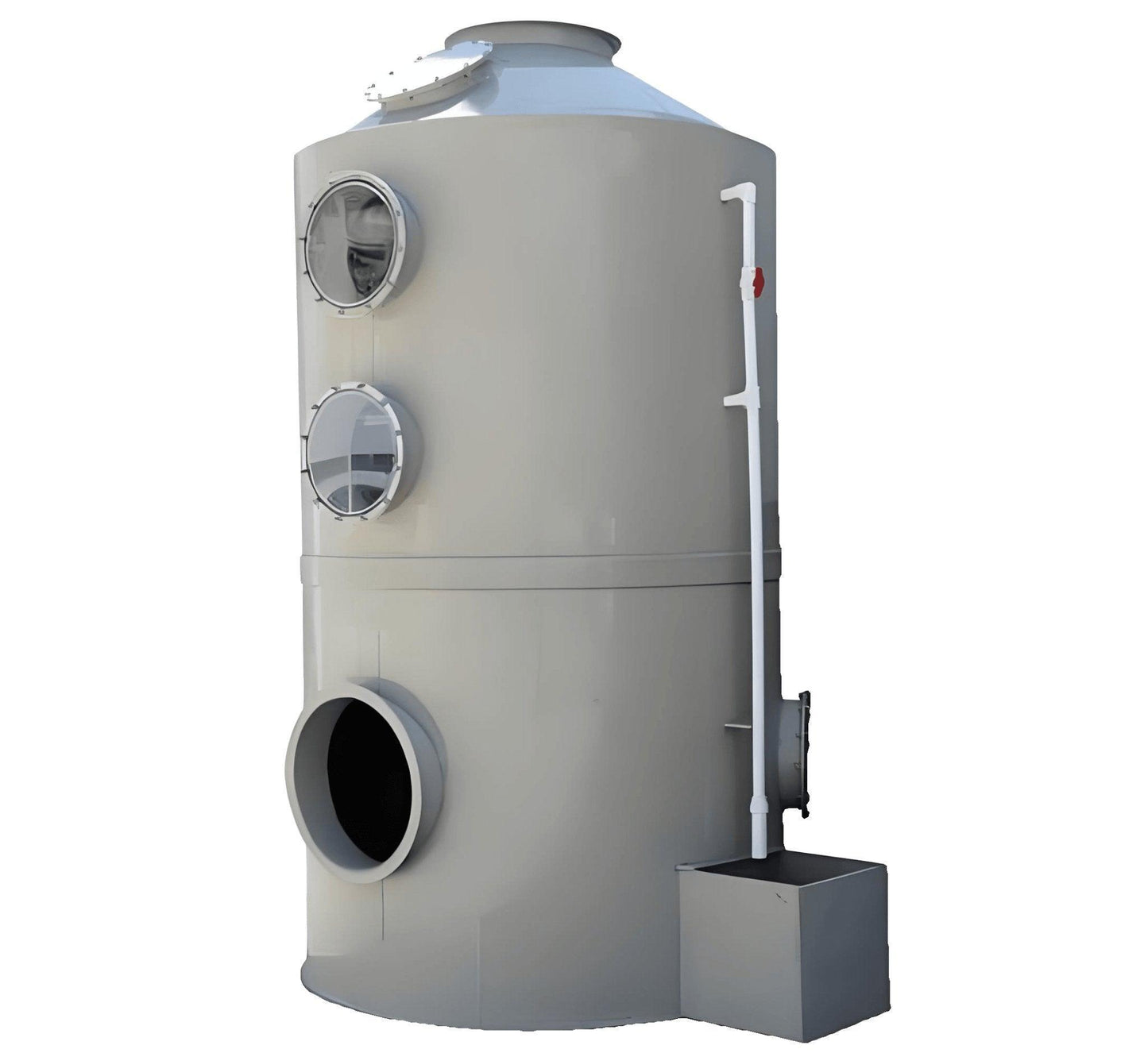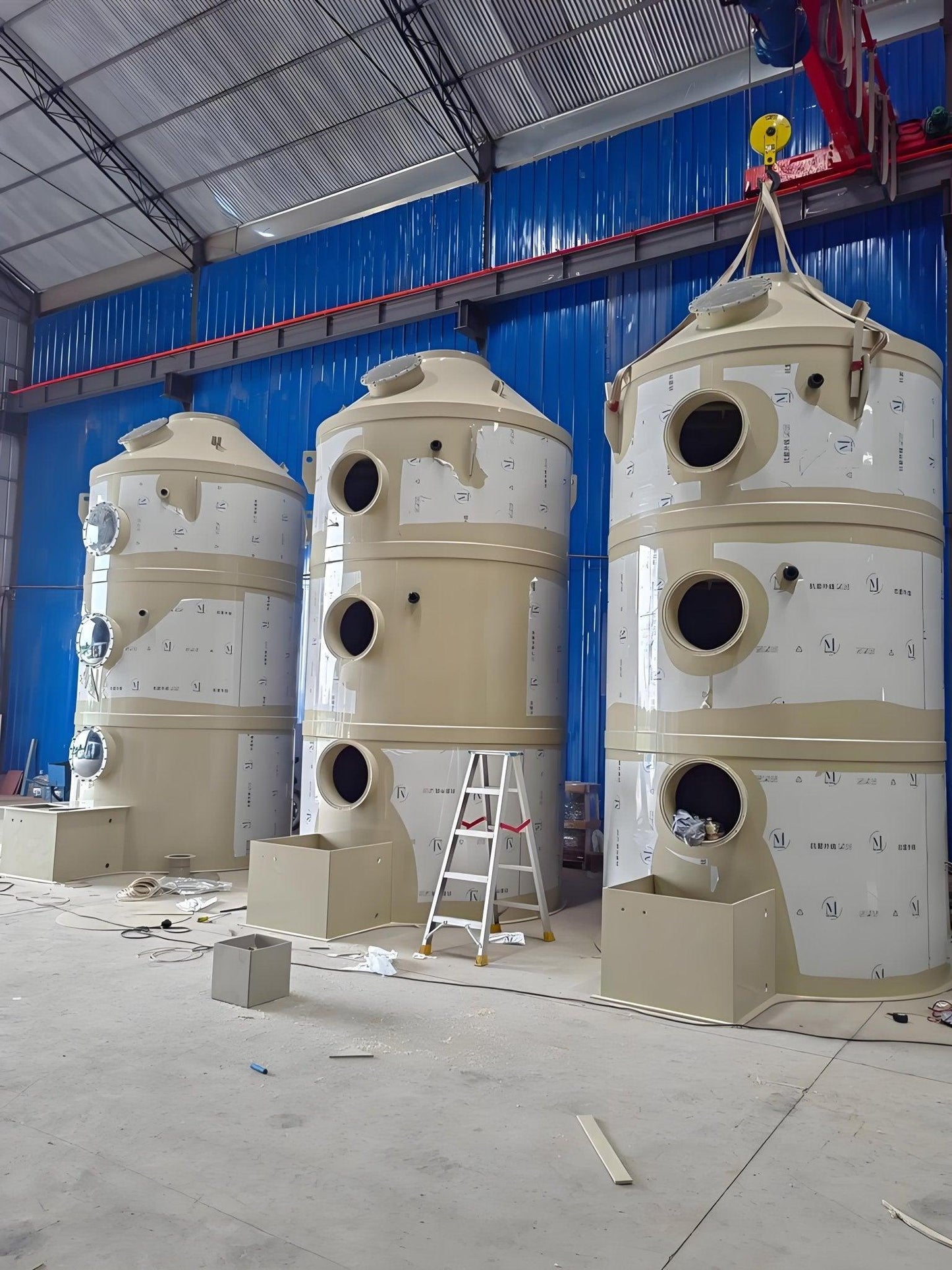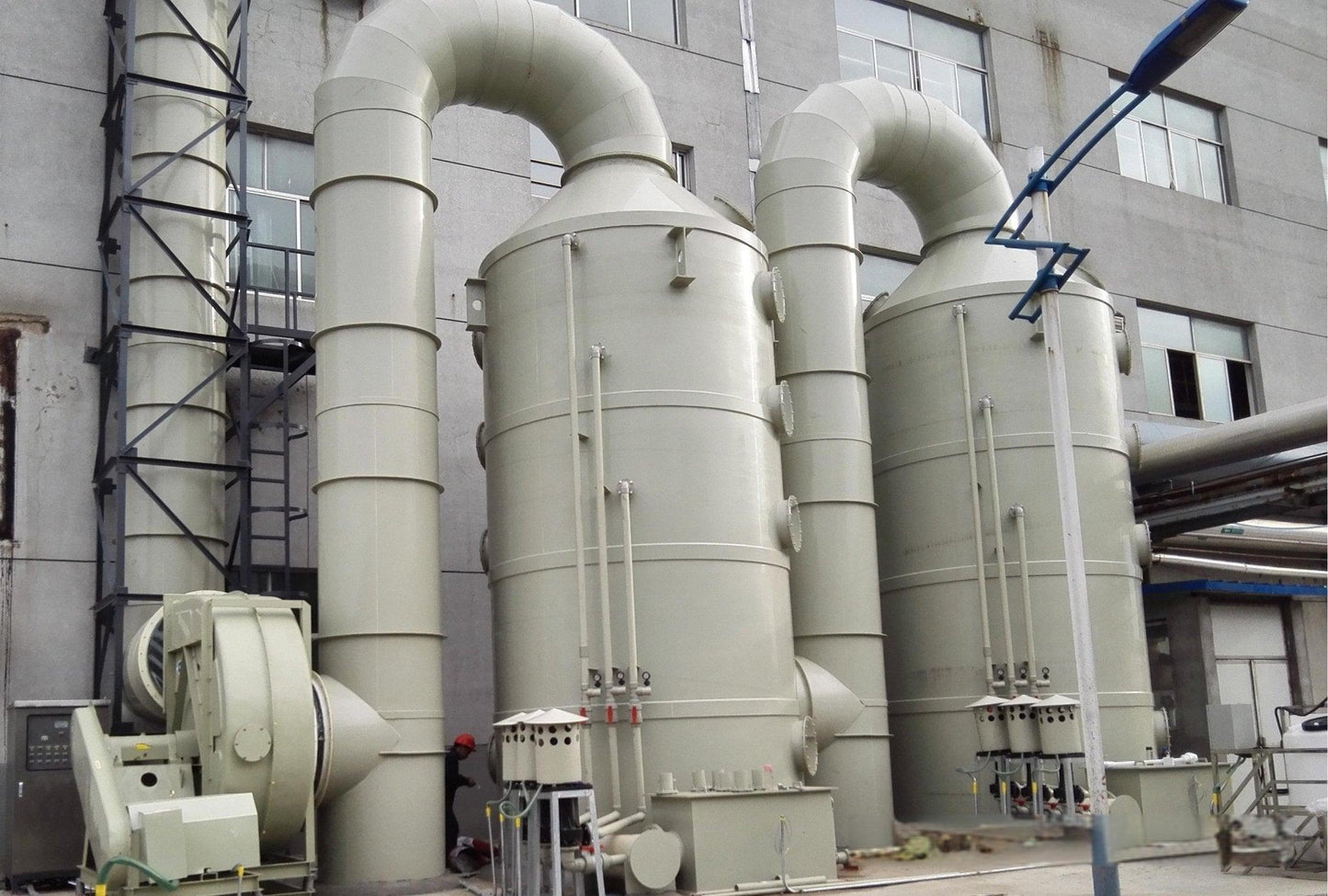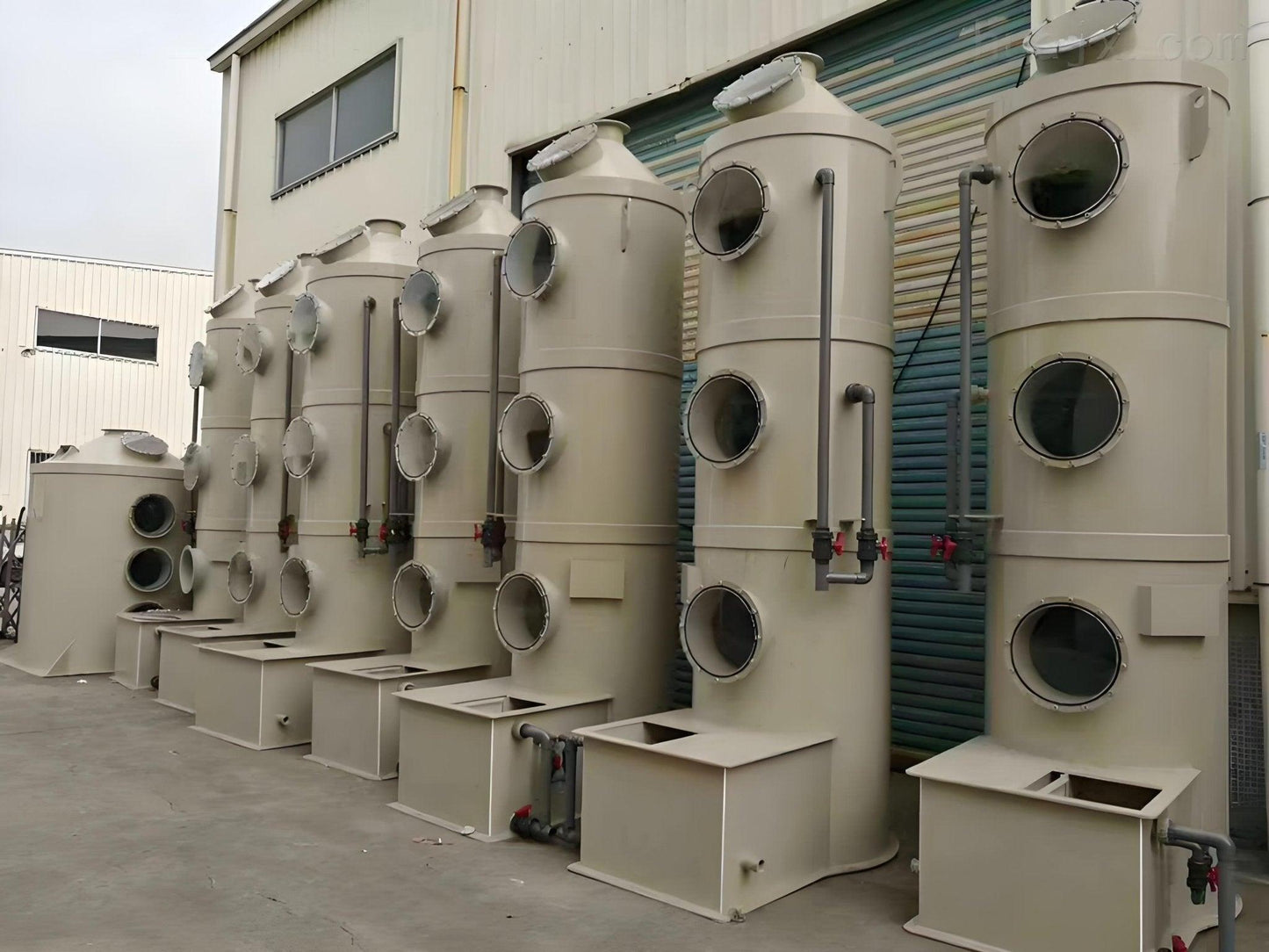
1
/
of
4
Spray Tower
Spray Tower
Share
A spray tower (or spray column) is a gas-liquid contactor used to achieve mass and heat transfer between a continuous gas phase and a dispersed liquid phase. It consists of a cylindrical vessel equipped with nozzles that spray liquid into the tower, allowing for effective gas scrubbing.
Key Features
-
Countercurrent Flow:
Inlet gas typically enters at the bottom and moves upward, while the liquid is sprayed downward, maximizing contact between the two phases. -
Droplet Size Control:
The efficiency of pollutant removal is influenced by droplet size; smaller droplets enhance collection efficiency for gaseous and particulate pollutants. -
Low Pressure Drop:
Spray towers generally exhibit low pressure drops, making them cost-effective in terms of operational energy requirements. -
Versatile Applications:
Commonly used for gas conditioning, cooling, humidifying, and removing soluble gases and particulate matter from industrial emissions. -
Simple Design:
Typically constructed with no moving parts, spray towers are relatively easy to maintain and operate.
Working Process
- Gas Inlet: Contaminated gas enters the tower from the bottom.
- Liquid Spraying: Liquid is sprayed from nozzles positioned at various levels within the tower.
- Contact and Absorption: As gas rises through the tower, it contacts the sprayed liquid droplets, allowing for absorption of pollutants.
- Collection of Clean Gas: The cleaned gas exits from the top of the tower, while collected pollutants are removed from the bottom.








